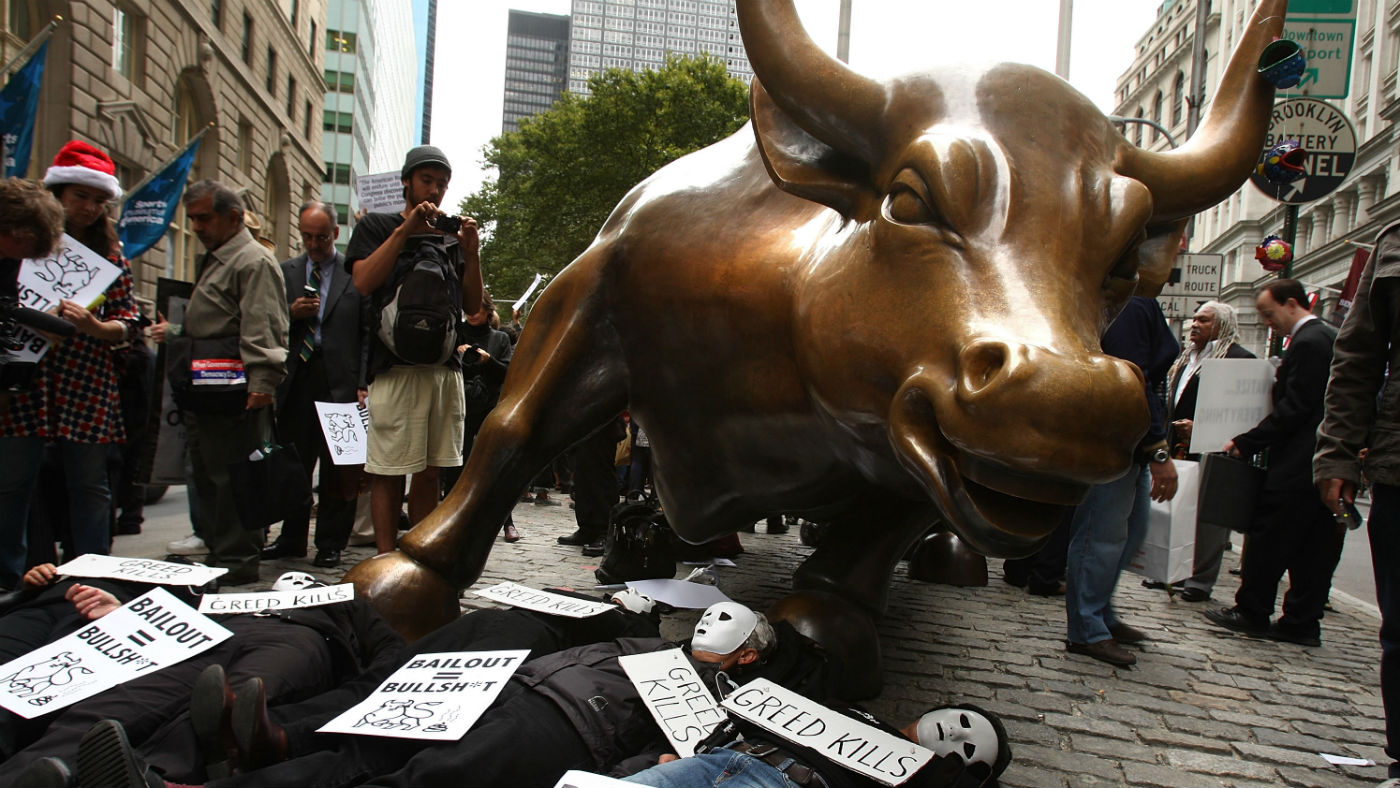Global financial system facing ‘perfect storm’
Senior OECD banker says the financial system now more dangerous than in 2008

A free daily email with the biggest news stories of the day – and the best features from TheWeek.com
You are now subscribed
Your newsletter sign-up was successful
The global financial system is now carrying more risk that it was at the time of the financial crisis, a senior central banker has warned.
A decade of low interest rates and other emergency stimulus has lured emerging markets into debt dependency, without addressing the structural causes of the global disorder, according to William White, the Swiss-based head of the OECD’s review board and ex-chief economist for the Bank for International Settlements.
What is more, the policies adopted by central banks since 2008 mean there is little authorities could do were another global financial bubble to bust, he said.
The Week
Escape your echo chamber. Get the facts behind the news, plus analysis from multiple perspectives.

Sign up for The Week's Free Newsletters
From our morning news briefing to a weekly Good News Newsletter, get the best of The Week delivered directly to your inbox.
From our morning news briefing to a weekly Good News Newsletter, get the best of The Week delivered directly to your inbox.
Speaking to The Daily Telegraph ahead of the World Economic Forum in Davos, White said: “All the market indicators right now look very similar to what we saw before the Lehman crisis, but the lesson has somehow been forgotten.”
Saying the financial system had been distorted by quantitative easing and negative interest rates, he said: “There is an intoxicating optimism at the top of every unstable boom when people latch on to good news and convince themselves that risk is fading, but that is precisely when the worst mistakes are made”.
Compared to 2007-08, says Ambrose Evans-Pritchard in the Telegraph, “this time central banks are holding a particularly ferocious tiger by the tail”, as global debt levels have surged by more than 50% of GDP since the financial crisis.
Last November, the World Economic Forum warned that a build-up of bad loans in India and China’s growing credit boom meant banks across the world were more vulnerable to a crisis than they were ahead of the credit crunch, The Guardian reports.
A free daily email with the biggest news stories of the day – and the best features from TheWeek.com
Writing in the South China Morning Post last month, historian Niall Ferguson echoed these fears and argued that another global financial crisis is imminent.
Yet these warnings appear to be falling on deaf ears. The International Monetary Fund yesterday revised up its forecast for world economic growth in 2018 and 2019, Reuters reports, saying that sweeping US tax cuts were expected to boost investment in the world’s largest economy and help its main trading partners.
The IMF report says 120 economies, accounting for three-quarters of global economic activity, saw a pick-up last year, “the broadest synchronised global growth upsurge since 2010”, says the BBC.
Yet the upturn in confidence came with a note of caution from the IMF’s chief economist, Maurice Obstfeld who said: “The present economic momentum reflects a confluence of factors that is unlikely to last for long.”
He argued it was vital for governments take steps to address impediments to growth, to make it more inclusive and to make economies more resilient when the next downturn comes.
However, just exactly when that will be remains a matter of some debate.
-
 Political cartoons for February 15
Political cartoons for February 15Cartoons Sunday's political cartoons include political ventriloquism, Europe in the middle, and more
-
 The broken water companies failing England and Wales
The broken water companies failing England and WalesExplainer With rising bills, deteriorating river health and a lack of investment, regulators face an uphill battle to stabilise the industry
-
 A thrilling foodie city in northern Japan
A thrilling foodie city in northern JapanThe Week Recommends The food scene here is ‘unspoilt’ and ‘fun’
-
 Is the US in a hiring recession?
Is the US in a hiring recession?Today's Big Question The economy is growing. Job openings are not.
-
 Is the UK headed for recession?
Is the UK headed for recession?Today’s Big Question Sluggish growth and rising unemployment are ringing alarm bells for economists
-
 Why has America’s economy gone K-shaped?
Why has America’s economy gone K-shaped?Today's Big Question The rich are doing well. Everybody else is scrimping.
-
 Is the US in recession?
Is the US in recession?Today's Big Question ‘Unofficial signals’ are flashing red
-
 French finances: what’s behind country’s debt problem?
French finances: what’s behind country’s debt problem?The Explainer Political paralysis has led to higher borrowing costs and blocked urgent deficit-reducing reforms to social protection
-
 Doing the hustle: Are side gigs a sign of impending recession?
Doing the hustle: Are side gigs a sign of impending recession?In the Spotlight More workers are 'padding their finances while they can'
-
 Frozen pizza sales could be a key indicator of a recession
Frozen pizza sales could be a key indicator of a recessionThe Explainer Sales of the item have been increasing since the pandemic
-
 Trump tariffs: five scenarios for the world's economy
Trump tariffs: five scenarios for the world's economyThe Explainer A US recession? A trade war with China? How 'Liberation Day' could realign the globe